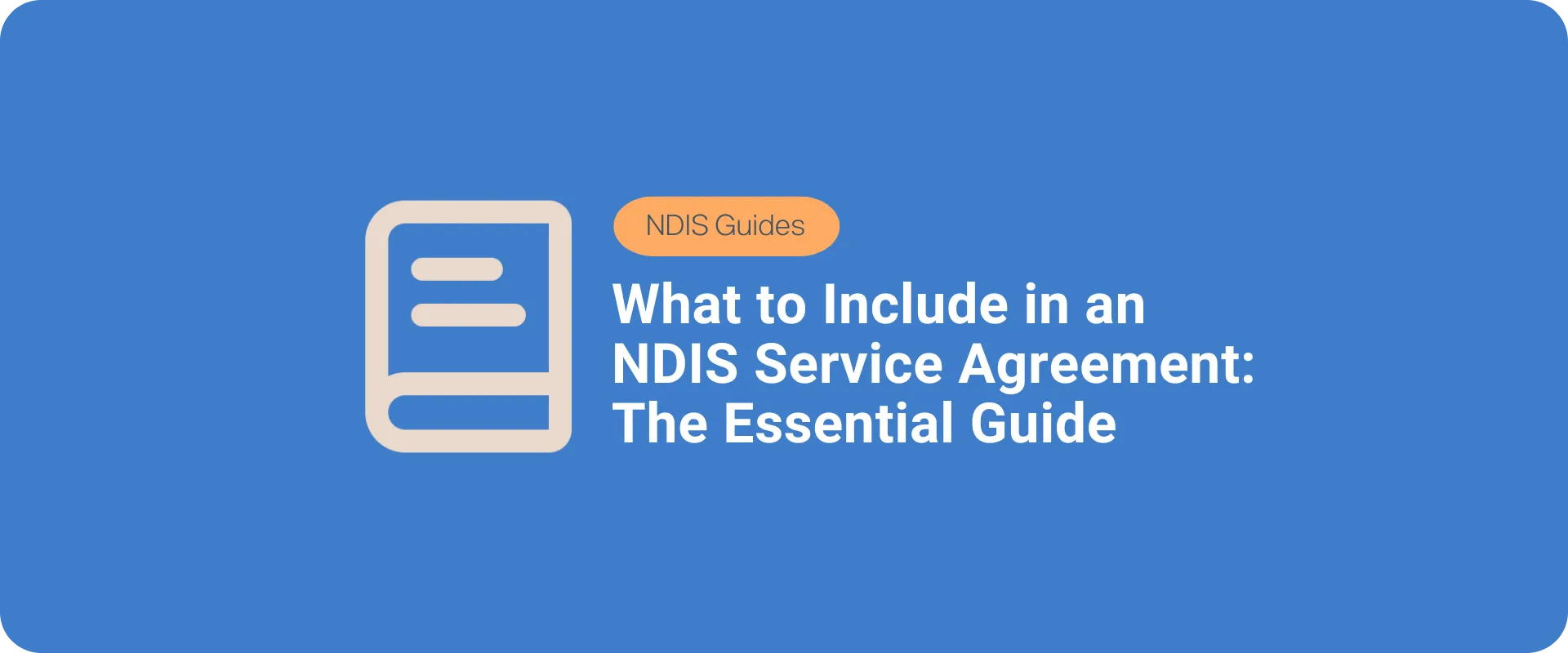What to Include in an NDIS Service Agreement: The Essential Guide
Creating a well-structured NDIS service agreement is key to ensuring smooth, transparent, and effective support delivery. This guide will walk you through the main elements of an NDIS service agreement, helping you create a document that reflects the expectations of both the NDIS service provider and the participant.
What Is a Service Agreement?

An NDIS service agreement is a formal, written contract between an NDIS service provider and a NDIS participant. It outlines the services to be provided, including details such as frequency, days, and times, along with the associated costs. This legally binding document protects both the participant and the service provider.
It’s important to note that the service agreement is distinct from the NDIS plan. While the NDIS plan specifies the funding a participant receives, the service agreement focuses on the specific support and services that will be delivered in exchange for that funding.
Why Do You Need a Service Agreement?
A service agreement is essential for setting clear expectations, avoiding misunderstandings, and ensuring both parties are aligned. Here’s why it matters:
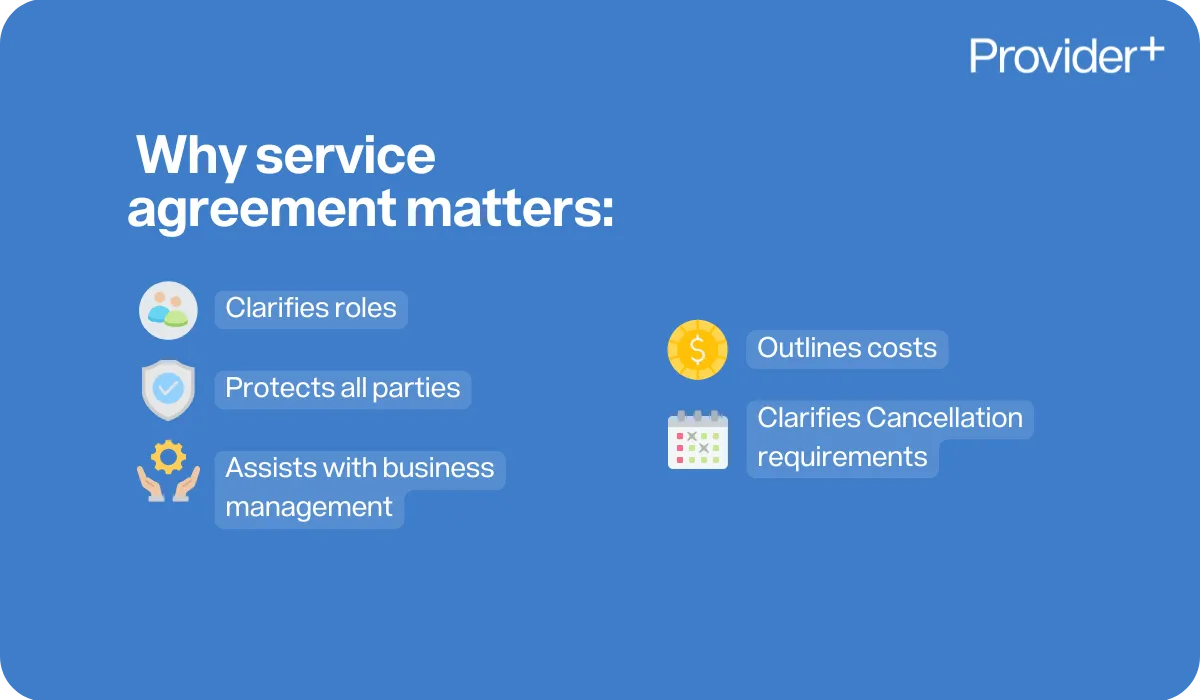
- Clarifies roles: Clearly defines the responsibilities of both the service provider and the participant.
- Protects all parties: Acts as evidence of agreed services and payment terms, even if the participant doesn’t formally sign the document.
- Assists with business management: Helps service providers manage resources and deliver services as agreed.
- Outlines costs: Ensures transparency around service costs and payment methods.
- Clarifies Cancellation requirements: Highlights the timeframe by which both parties must agree to when either party requests a cancellation of services.
Key Components of a Service Agreement
A comprehensive service agreement should include:
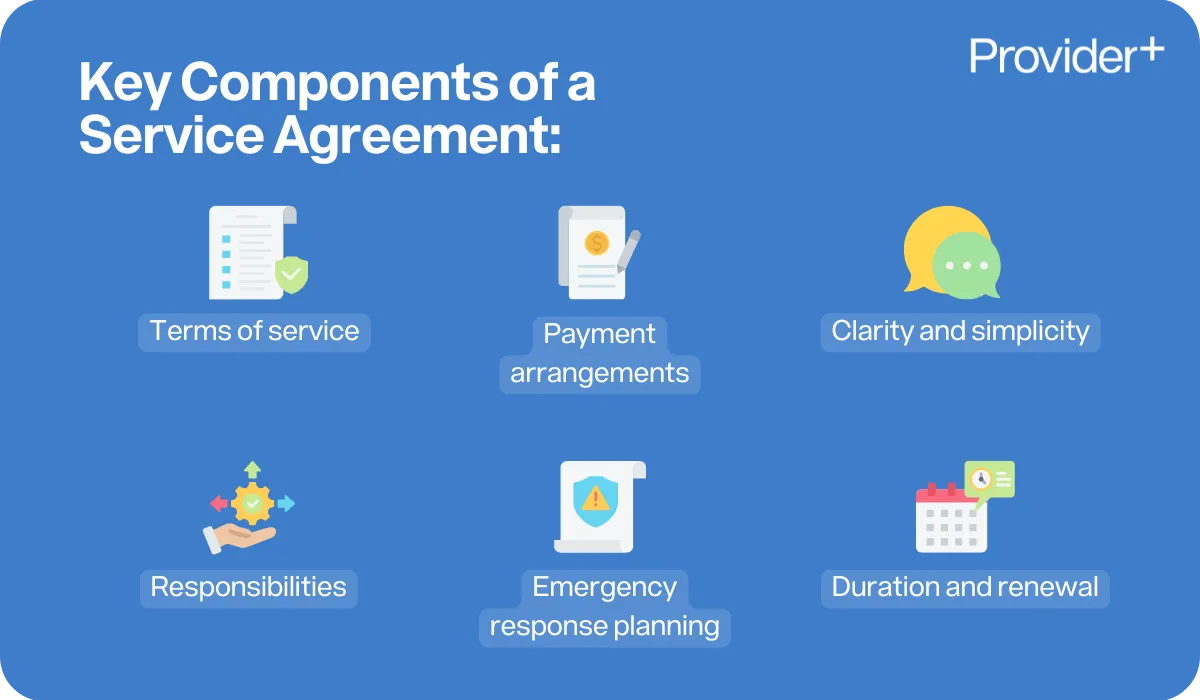
- Terms of service: Detailed information on the services provided, including frequency, duration, and delivery methods.
For example you are a service provider delivering the registration group 0120 Household tasks, where you offer services of cleaning a participant’s home. You have agreed with the participant to clean twice a week, each Monday and Friday, for a length of 2 hours each session.
- Payment arrangements: A breakdown of service costs, payment schedules, and any additional charges.
Utilising the NDIS Pricing Arrangements and Support Catalogue we identify that we are charging $56.23 per hour for:

- Responsibilities: Well-defined roles for both the service provider and the participant including information regarding resolving disputes.
- Clarity and simplicity: The agreement should be written in a mode of communication with straightforward language, free from jargon.
- Duration and renewal: Clear details on the service period, review dates, and any conditions for renewal.
- Emergency Response Planning: Detailed guidelines on how to support a participant during emergency situations.
NDIS Requirements and Regulations
The National Disability Insurance Agency (NDIA) recommends that all NDIS service providers have a written service agreement to ensure both parties understand their obligations. Service agreements must comply with the NDIS Act and NDIS Pricing Arrangements and Price Limits utilising the NDIS Support Catalogue.
Providers must also adhere to the regulations set by the NDIS Quality and Safeguards Commission, which oversees providers across all states and territories. For more information, visit the NDIS Quality and Safeguards Commission website.
A service agreement between a service provider and participant is governed by the same principles as any other agreement under Australian Consumer Law. The Australian Competition and Consumer Commission further provides resources to assist businesses, including not-for-profit organisations, that offer goods or services to people with disabilities or NDIS participants.
Signing and Reviewing Service Agreements
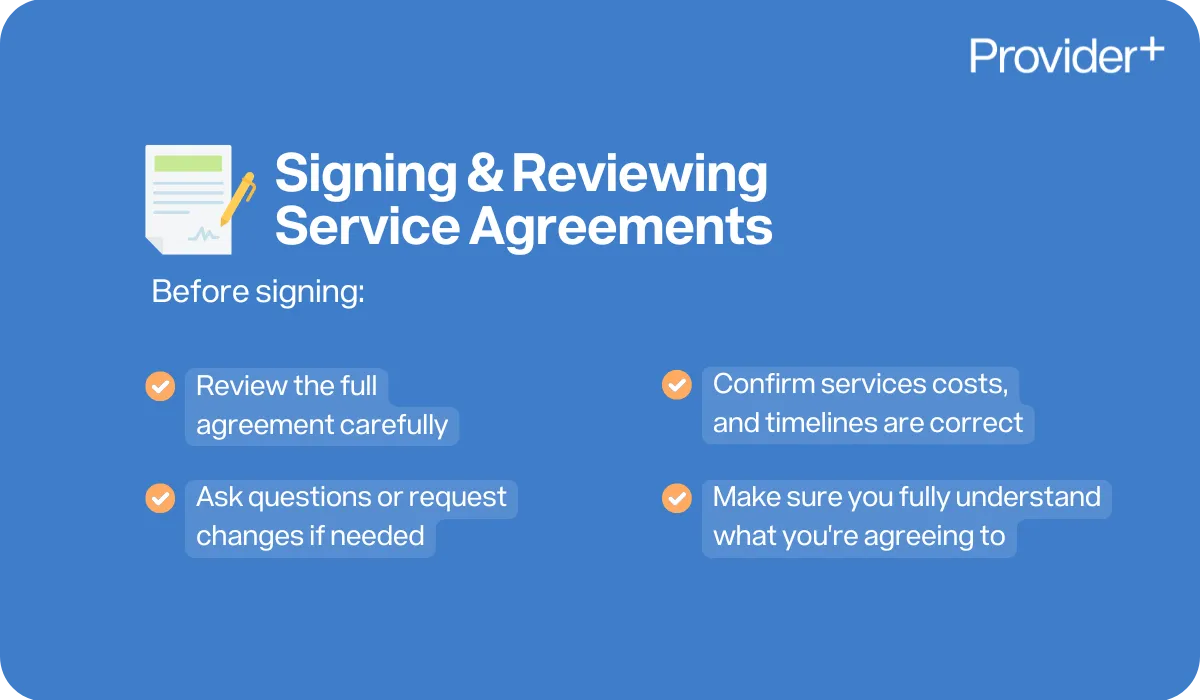
Before signing, both the provider and the participant should carefully review the agreement. The provider must confirm that the services and costs are correct, and the participant should feel free to ask questions or request changes where necessary.
NDIS participants have the right to request changes to their NDIS services, and the agreement should be reviewed regularly to ensure it stays up to date and relevant, containing accurate records. Additionally, it's important to note that with each new NDIS plan a participant receives, a new Service Agreement should be created to reflect the latest changes and plan dates.
Support Coordinators can assist NDIS participants in understanding their service agreements with service providers, providing further information regarding the supports provided and agreement terms.
Authorised Signatories
Typically, a NDIS participant and the service provider are required to sign the agreement. However, if the participant has an appointed decision-maker, such as a guardian or advocate, these individuals may sign on behalf of the participant for specific sections. It is essential that authorised signatories have the legal authority to make decisions on the participant’s behalf.
Managing Service Agreements
Service agreements are crucial throughout the NDIS journey, ensuring that a participant’s needs are met and their rights are upheld. Participants should feel confident in asking questions, suggesting changes, and expressing their preferences to ensure the agreement truly reflects their needs. NDIS service providers, in turn, should regularly review service delivery and make any necessary adjustments within the service agreement to ensure satisfaction and continued funding.
NDIS providers can utilise resources such as the ‘Things to consider when creating a Service Agreement’ which can be located on the NDIS Commission’s website.
Common Mistakes to Avoid
Here are some common mistakes to watch out for when managing service agreements:

- Neglecting to review: Failing to periodically update the agreement may result in outdated terms.
- Unclear costs: Not providing a complete breakdown of service costs can lead to budgeting problems.
- Lack of transparency: If costs or changes to services aren’t clearly stated, it can lead to confusion, disputes and the risk of unpaid invoices.
- Infrequent service reviews: Providers may miss the need to adjust services based on the participant’s evolving needs, leading to dissatisfaction or funding issues.
Dispute Resolution and Enforceability
A well-written service agreement helps prevent many potential issues. If a participant refuses to pay, the provider can reference the agreement to confirm the agreed services and payment terms.
In the event of disputes, the NDIS can offer support. The service agreement should outline conditions under which services may be withdrawn or funding requirements enforced. Regular reviews and updates are crucial to ensure the agreement remains effective and that the participant’s needs are continuously met throughout their NDIS journey.
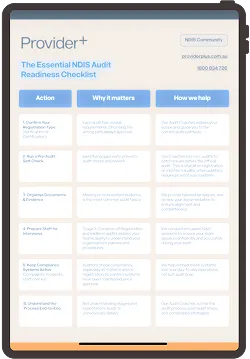
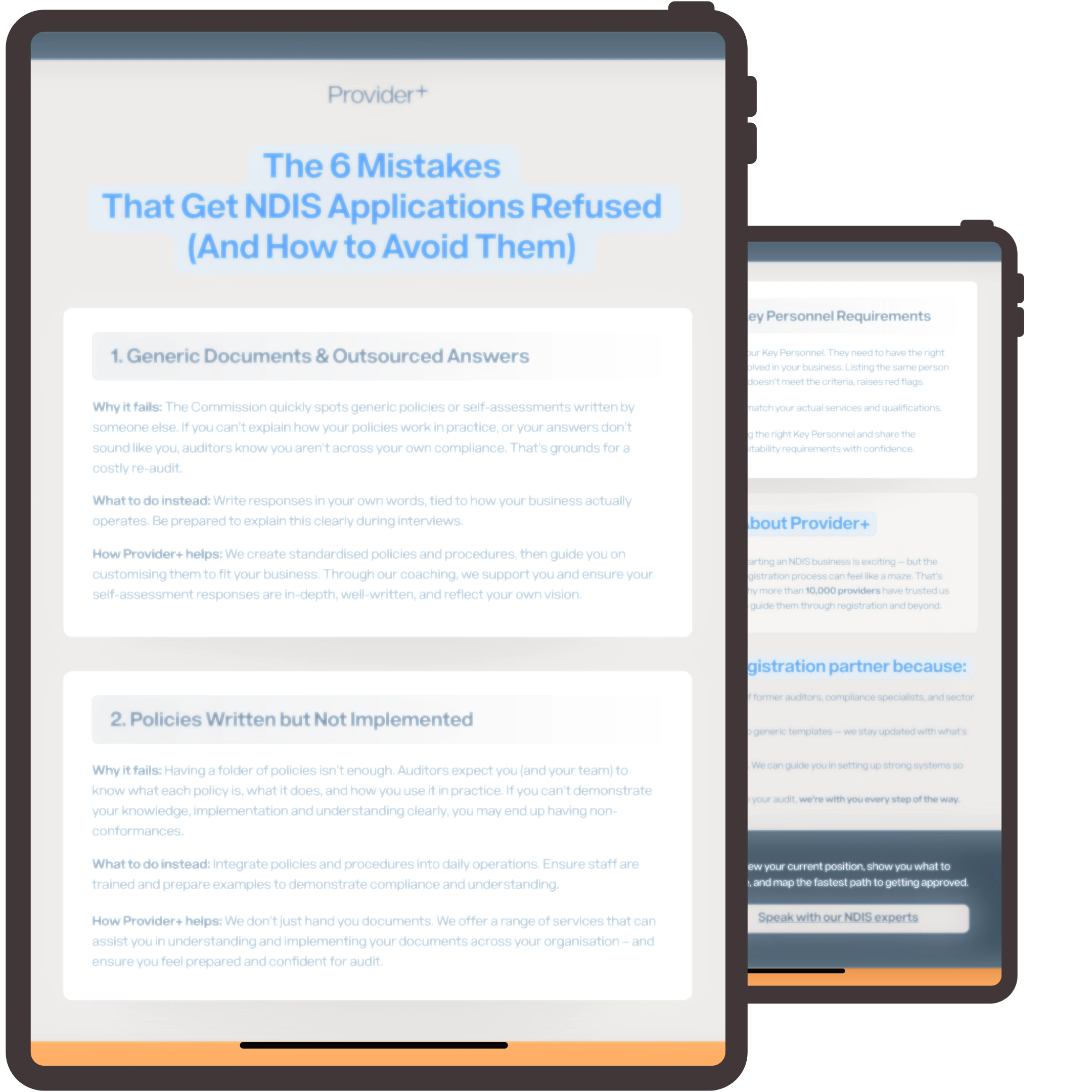
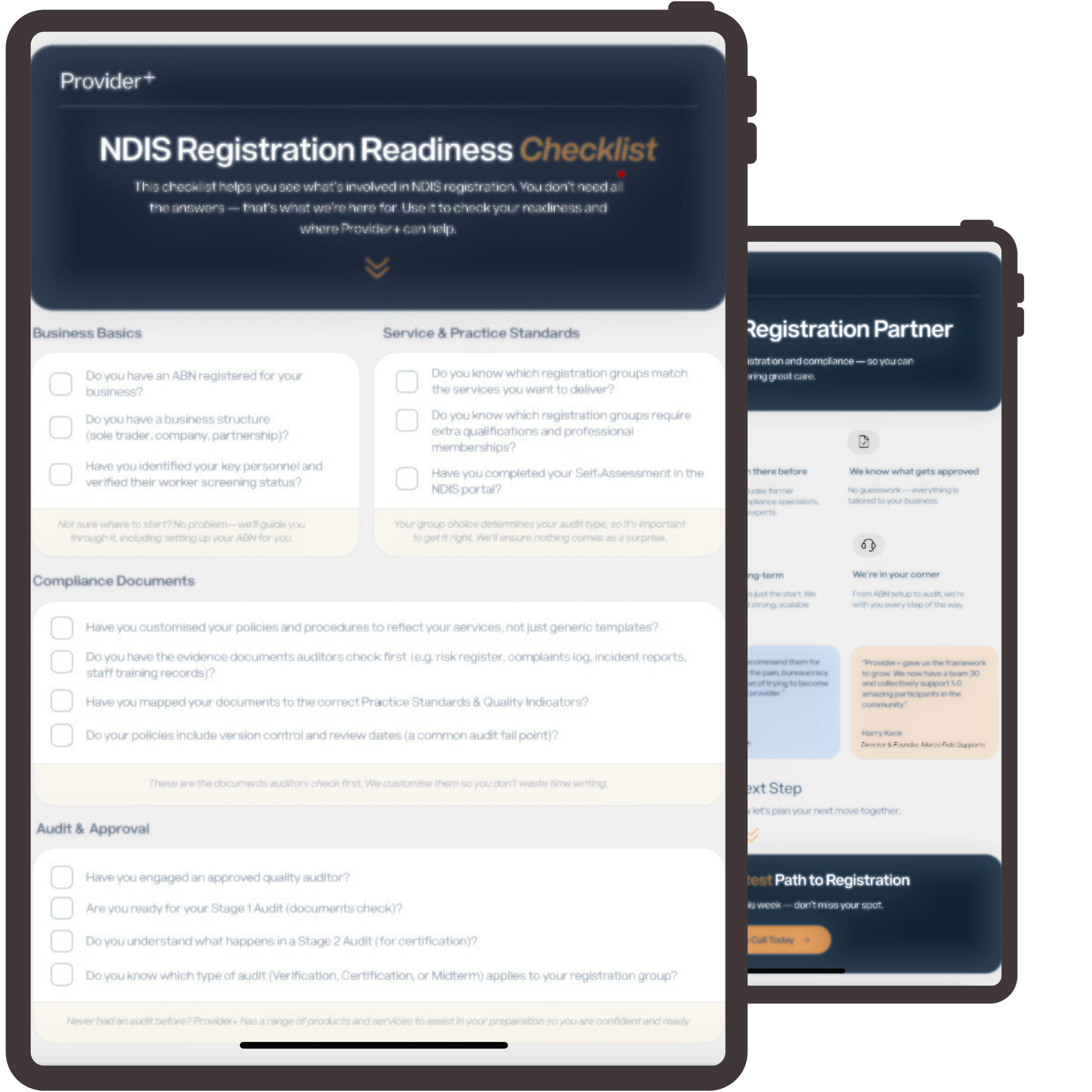

































FAQs
Here is our frequently asked questions.

